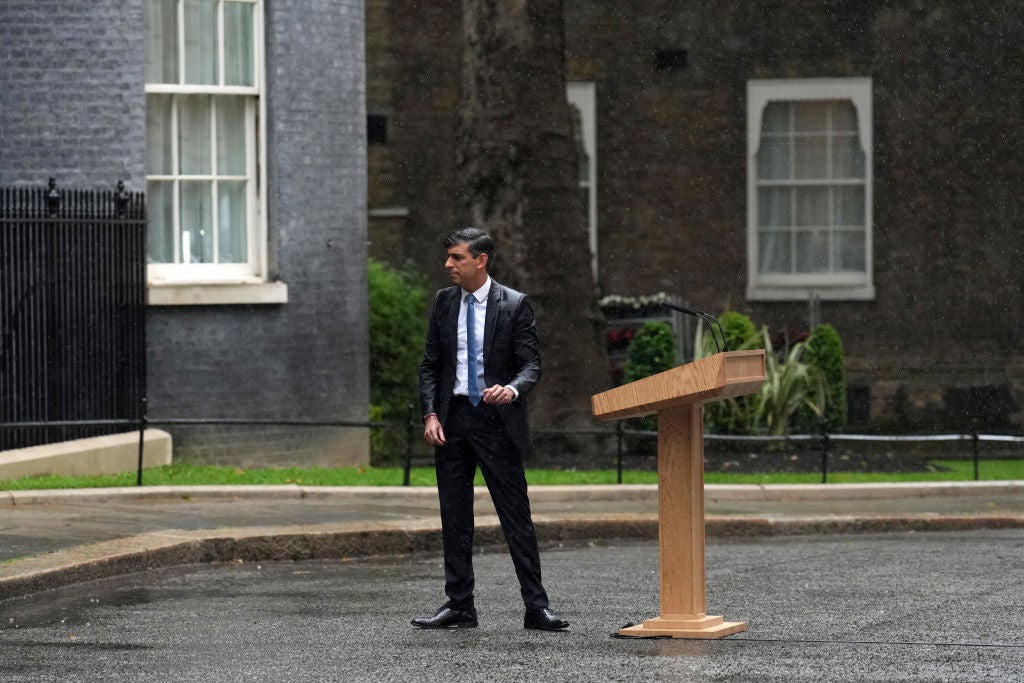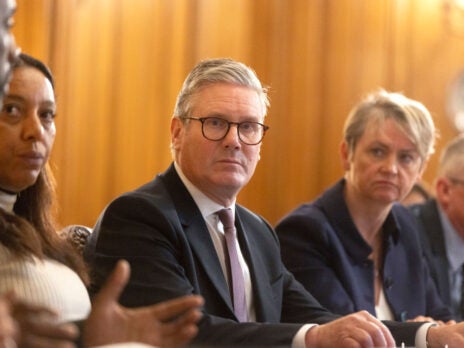
A resurgent party of the social democratic left. An incumbent administration lumbered with a late-coming leader and little popular headwind. A party of the radical right appealing more to the administration’s base than the administration ever could. And an increasingly irate region of affluence looking to rebel in a big way.
This is a clumsy description of Canada in 1993, an election year for the Commonwealth country in which the mainstream governing Conservatives were all but obliterated by splits on the right and a relatively popular left. But it’s a description, as I’m sure you have noticed, that can also suit Britain in 2024.
The election result of 4 July may not be the same as it was in Canada. And the comparison is, I concede, rather spartan in detail. But it’s not without some relevance. Because now, as we relaunch the Britain Predicts model for the general election campaign, I don’t think we quite appreciate just how close to the electoral precipice this Conservative administration really is.
If an election were held today, factoring for limited tactical voting and evidenced local and regional variation, the country would gift the Labour Party in the region of 400-450 seats, allowing it to top the poll across every almost every English and Welsh county, and near wrestling first place from the nationalists in Scotland. The Conservatives would end up with between 100 and 150 seats, their worst performance since… ever.
Reform would take a stubborn share of support in Ukip’s old stomping grounds – areas that gave the Tories their blow-out majority in 2019. The Liberal Democrats would clean up in great portions of affluent and Remain-backing southern England. And the Scottish National Party would be at risk of losing more than half its seats.
That’s the forecast if an election was held now. Also note that more than half of the predicted Tory seats would end up with majorities of 5 percentage points or less – marginals, essentially. Look at it another way: if the polls stay as they are and bear out, the Conservatives are only a margin of error away from falling from triple figures of seats to double – to behind the Liberal Democrats.
But these are the numbers of today, not in six weeks’ time. History suggests there is almost always a narrowing in support for an opposition that is riding high from public disillusionment with the government of the day. When the minds sharpen, when the undecideds make their choice, the poll leads decrease. At least, that’s what has happened in most elections – and I would assume that trend would continue here.
But the little narrowing in support over the past year and a bit, despite increasing awareness of the impending general election, despite the proportion of Britons being more and more sure of their vote, despite the fact we are long past that “mid-term parliament” period when excuses can run rampant, is different. My analysis of the May local elections was a simple one: this is not normal. And my analysis of the numbers this far into an election period is as dramatic: this is not normal.
Labour’s lead is 21 points over the Conservatives in terms of party popularity, and 12 points on the issue of the economy – the most fundamental metric to measure a party’s perceived competence. Keir Starmer’s own lead over Rishi Sunak is 11 points, and Starmer’s own likeability just edges his dislikeability by one percentage point.
The Labour brand is healthy. Starmer’s leaves something to be desired, but nonetheless this is the best position we have seen the British Labour Party in this century. It comes at a time when 60-70 per cent of us believe the coming election should be a change election – a change of government election. Whatever Starmer’s own weaknesses, there are few or no routes to recovery for the governing Conservatives. How do you recover when so few will even listen?
[See also: The Tories have no hope of avoiding defeat]


